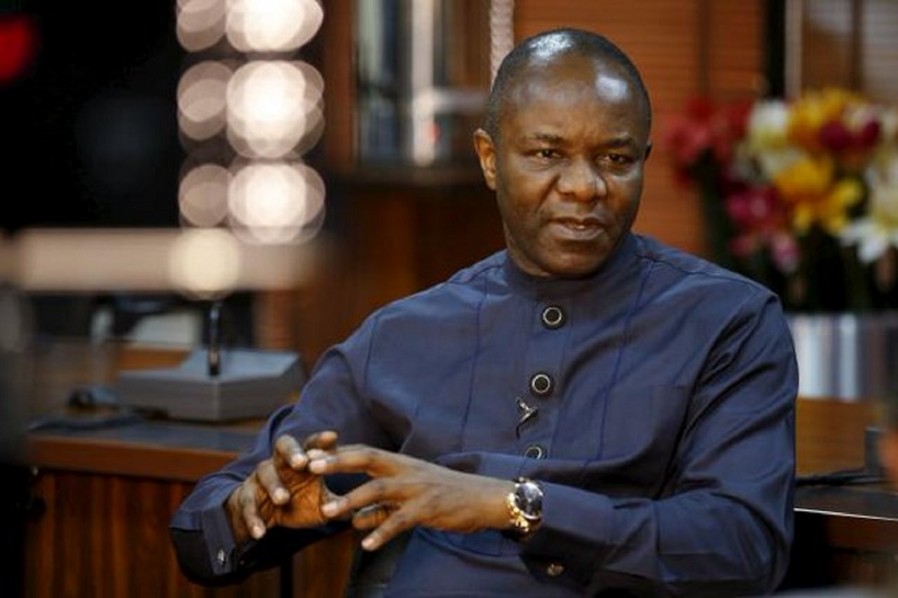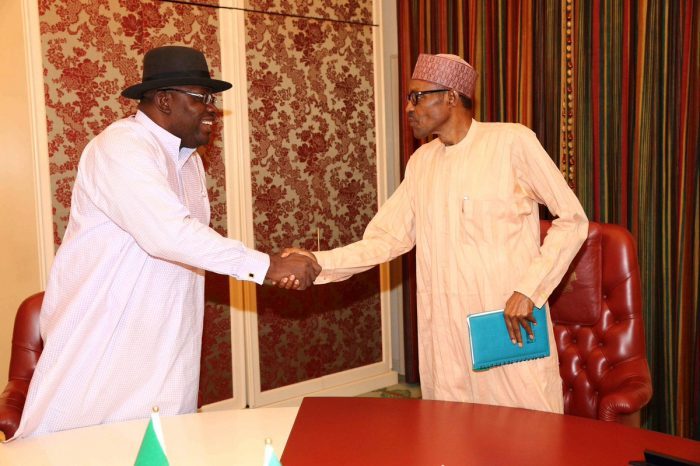President Muhammadu Buhari said in Abuja on Tuesday that the establishment of modular refineries in the country would make petroleum products available and eliminate importation.
The president said this at the virtual inauguration of the 5,000-barrels-per-day Waltersmith modular refinery in Ibigwe, Imo.
Buhari also performed the Ground-Breaking for the Phase-2 works aimed at expanding the capacity of the refinery to 50,000 barrels/day.
According to him, the deployment of modular refineries is one of the four key elements of his administration’s Refinery Roadmap rolled out in 2018.
He said that the deployment of such refineries would make Nigeria a net exporter of petroleum products.
The president said he was happy that the Waltersmith refinery in Ohaji Egbema Local Government Area of Imo was coming on stream within two years of the inauguration of the roadmap, after many years of granting licenses for the establishment of modular refineries with nothing to show for it.
“Furthermore, there is increased momentum in the other three focus areas under the roadmap covering the rehabilitation of existing refineries, co-location of new refineries, and construction of greenfield refineries.
“The realisation of the Refinery Roadmap will ultimately lead us to becoming a net exporter of petroleum products not only to neighbouring countries but to the worldwide market.
“This modular refinery is the largest commissioned modular refinery in the country today.
“The role played by the Federal Government through the Nigerian Content Development and Monitoring Board (NCDMB) in going into collaboration with Waltersmith Refining and Petrochemical Company is novel in concept and superb in delivery,” he said.
Buhari described plans to expand the crude oil and condensates refining capacity of the refinery to 50,000 barrels per day as “an important part of economic reforms the country is undergoing.
“I look forward to seeing this new phase completed within the target timeframe.”
Buhari, therefore, directed the Ministry of Petroleum Resources, Department of Petroleum Resources (DPR), the Nigerian National Petroleum Corporation (NNPC), as well as all relevant government agencies to give Waltersmith refining company all the necessary support it would need to access crude oil and condensate feedstock for the timely delivery of the additional capacity.
The president said he was pleased to note that hundreds of direct and indirect jobs were created during the construction of the first phase of the project in addition to the various business opportunities in line with his administration’s agenda on job creation
He said he was hopeful that the implementation of the second phase of the project would create bigger additional employment opportunities.
Buhari expressed appreciation to the local community and the people of Imo for hosting the refinery, which, he stressed, would create prosperity and economic development in the area.
He praised the Ministry of Petroleum Resources, the Minister of State for Petroleum Resources, Timipre Sylva, the Chairman and members of the Governing Council, and the management and staff of NCDMB for making what he called the public-private partnership a success.
He also applauded the Chairman, Board, Management, and Staff of Waltersmith refinery for the professionalism and focus they brought to bear on getting the project completed.
Gov. Hope Uzodinma of Imo and the Minister of State, Petroleum, cut the tape on behalf of the president at the event which was also attended by the Group Managing Director of NNPC, Mele Kyari.
Others, who attended the event included the Executive Secretary, NCDMB, Engr. Simbi Wabote, and the Chairman of WalterSmith refinery, Abdulrazaq Isa.


